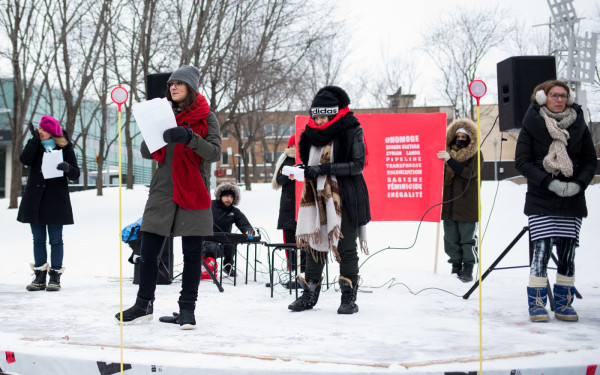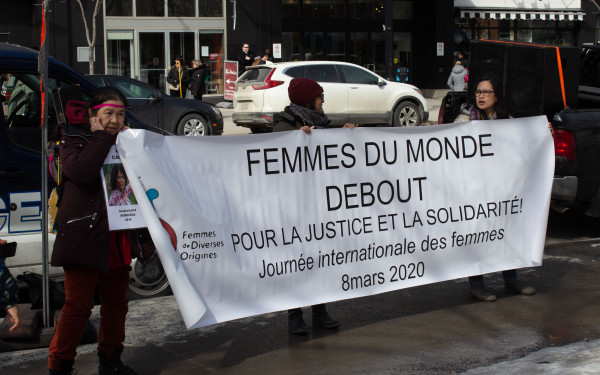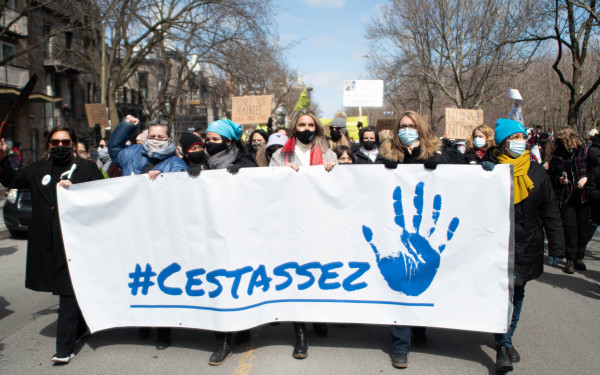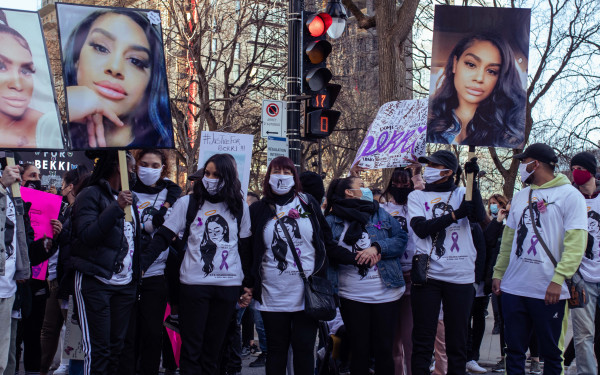Tall Order at Montreal’s World March of Women
With education, health care, employment, housing and gender-based violence on the agenda, the Quebec Women’s Federation will be walking under a big banner at the World March of Women.
The international march, founded by the FFQ in 1998, is taking place in neighbourhoods across the province and in 60 other countries from Oct. 12 to 17. Its aim is to draw attention to poverty, violence, discrimination and marginalization and how they affect women.
Montreal will host a variety of actions, including a regional forum on the privatization of the health care system on Oct. 13.
“The privatization of health care is one of the biggest threats to women’s equality that we’ve seen in the last 40 years,” said Alexa Conradi, president of the FFQ.
“Each time the government tries to privatize services, they offload those services to private companies who will then charge us money to have access to them, which is a challenge for those of us who have little money or who have to spend it already on other things like housing and food and education.”
The Liberal government’s 2010 budget included a proposed mandatory health-care fee for Quebec residents, aimed to increase each year towards a flat rate of $200 by 2012.
“The other way to offload some of the services is to send them back to women,” Conradi continued. “If we return it back to women as we already do with a lot of elder care, then it will be harder for us to occupy spaces in public life, it will be harder for us to find work outside of the home, and therefore we come back to the situation where women’s choices are really limited.”
According to the Canadian Women’s Health Network, women provide more than 80 per cent of both paid and unpaid health care in Canada and are the most frequent users of the health care system—as patients themselves, or in taking children and relatives, especially seniors, for care. It also reports that paid health care staff—from nurses to housekeeping—have faced massive job losses due to hospital closures and restructurings.
Conradi also argued that women bear the brunt of housing problems, especially as single mothers or victims of domestic violence struggle to find affordable housing.
The FFQ was recently criticized by La Presse journalist Marie-Claude Lortie, who questioned the organization’s decision to include the war in Afghanistan and the privatization of public services in their new controversial ad campaign with the view that neither are explicitly “women’s issues.”
The FFQ’s response was that all social justice issues are women’s issues.
“The advancement of the rights of women cannot exist outside of the advancement of society,” they posted on their website. “That’s why all social issues interest women. To say otherwise would be troubling.”
Other actions planned for this week include a historic walking tour, a rally for affordable housing, an anti-war demonstration and a conference on violence against women that will be taking place at Concordia. The events will finish in Rimouski on Sunday.
This article originally appeared in Volume 31, Issue 09, published October 12, 2010.





